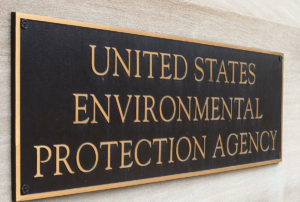 The renewable fuels industry welcomed new Renewable Fuel Standard (RFS) volume requirements for 2026 and 2027 announced by the Environmental Protection Agency on Friday.
The renewable fuels industry welcomed new Renewable Fuel Standard (RFS) volume requirements for 2026 and 2027 announced by the Environmental Protection Agency on Friday.
EPA proposal includes a total Renewable Volume Obligation (RVO) of 24.02 billion gallons (bg) for 2026, including 15 bg for conventional renewable fuels like corn ethanol and 9.02 bg for advanced biofuels, with 5.61 bg of biomass-based diesel and 1.3 bg of cellulosic biofuel. For 2027, the total proposed RVO is 24.46 bg, of which 15 bg is conventional renewable fuel and 9.46 is advanced biofuel. In addition, EPA is proposing lower RIN values for imported fuels to ensure that U.S.-produced renewable fuels are prioritized under the RFS.
“We are creating a new system that benefits American farmers while mitigating the impact on gas prices and ensuring the continued existence of liquid fuels,” said EPA Administrator Lee Zeldin. “We can no longer afford to continue with the same system where Americans pay for foreign competitors.”
“President Trump recognizes how important the Renewable Fuel Standard is for American corn and soybean farmers. This move by Administrator Zeldin is the boldest proposal ever and will provide certainty in a much-needed market for our producers while delivering lower prices at the pump for consumers. USDA and EPA have never been more aligned on the need for more American grown biofuels. This is the highest ever Renewable Volume Obligation and it sends a strong signal to the U.S. biofuels industry that President Trump has their backs and gives them the incentive to invest in American products for American consumers and to export around the world. America’s national security depends on our energy security, and biofuels are a crucial asset that brings more jobs and helps farmers in rural America,” said Secretary of Agriculture Brooke Rollins. “As the Trump Administration expands the domestic market for biofuels, at USDA we are working to break down tariff and non-tariff barriers for our American grown biofuels. President Trump’s landmark deal with the U.K. secured zero tariff access for over $700 million in ethanol exports. Not only can we be energy independent, we are unleashing American energy dominance abroad.”
Renewable Fuels Association President and CEO Geoff Cooper calls EPA’s draft rule a “very positive signal” for America’s ethanol industry and farmers. “This proposal sends a very positive and powerful signal to U.S. renewable fuel producers and farmers. It represents an excellent starting point for the 2026 and 2027 RVO discussion,” Cooper said. “We look forward to providing more feedback to EPA on the proposed volumes during the public comment period, and we’ll continue to underscore the vital importance of a strong RFS to America’s rural communities.” Cooper also noted that while the proposed rule does not specifically address 169 pending small refinery exemption (SRE) petitions, it includes a commitment from EPA to reallocate any SREs that may be granted in future actions.
American Coalition for Ethanol (ACE) CEO Brian Jennings said,”While we’re encouraged the Agency has indicated it intends to move quickly toward finalizing the 2026-2027 RVOs, ACE will continue urging EPA to use its statutory authority to ensure conventional biofuel volumes are well above 15-billion gallons to support a growing U.S. ethanol industry,” said Jennings. “Our forthcoming comments will also emphasize the importance of projecting and reallocating small refinery exemptions (SREs) to provide greater certainty and uphold the integrity of the RFS program, as well as stress the need for EPA to adopt the most current GREET model for accurately accounting lifecycle greenhouse gas emissions — emissions that continue to trend lower for ethanol.”
Clean Fuels Alliance America, which represents producers of biodiesel, renewable diesel, and sustainable aviation fuel, was especially pleased with the EPA proposal.
“The industry has made major investments in domestic production capacity and feedstocks to meet America’s energy needs and provide consumers affordable, cleaner fuels. We anticipate this will have a tremendous beneficial impact for American farmers and agricultural communities and we look forward to working with President Trump and EPA Administrator Zeldin to finalize this rule and fully unleash U.S. clean fuel producers,” said Kurt Kovarik, Clean Fuels’ Vice President of Federal Affairs. “Our industry supplied more than 5 billion gallons of biodiesel, renewable diesel and SAF to the U.S. market in 2024, and is poised to deliver more in 2026. The U.S. biomass-based diesel industry supports 107,400 jobs and generates $42.4 billion in economic activity. Continued market growth and stability through the RFS will enable more economic opportunities, create more jobs, and revitalize America’s agricultural sector.”
 Soybean farmers are concerned with changes made by the Senate Finance Committee in the House-passed Section 45Z Clean Fuel Production Credit language that would allow foreign biofuel feedstocks to qualify for the credit.
Soybean farmers are concerned with changes made by the Senate Finance Committee in the House-passed Section 45Z Clean Fuel Production Credit language that would allow foreign biofuel feedstocks to qualify for the credit.











